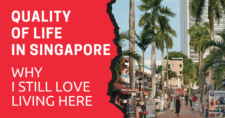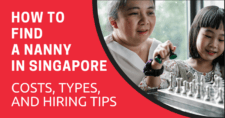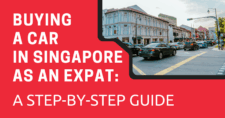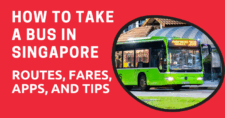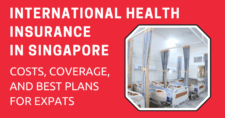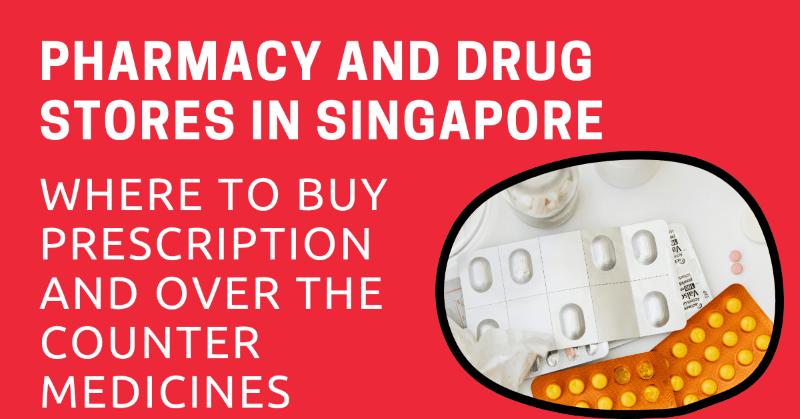
This article will take approximately 17 minutes to read. Don't have the time right now? No worries. Email the ad-free version of the article to yourself and read it later!
Looking for a reliable pharmacy in Singapore? Learn how to get your prescription and over-the-counter medicines safely from licensed drug stores, online pharmacies, hospitals, and polyclinics. Find out how prescriptions work, where to buy affordable meds, and what to know before bringing personal medication into Singapore.
Are you new to Singapore or looking to make a move soon? That’s great, and we look forward to welcoming you soon. However, as you may have heard, Singapore’s regulations are renowned for being strict, and that includes the pharmaceutical industry. So if you’re on prescription pills or need to get on them, you’ll need to know a convenient, safe way to do so.
The good news is that Singapore’s healthcare system is one of the best in the world, and you’ll always get top-quality medicine. You’ll find drug stores, better known as pharmacies, in many places, including malls, public transport hubs, hospitals, and clinics. There’s also a selection of licensed, tightly regulated online pharmacies from which you can place reliable orders.
It might be a tad overwhelming at first, but once you get the hang of the system and place your first order, you’ll see how easy it can be. In this blog post, I’ll walk you through all you need to know about getting your medications from pharmacies.
From what’s available where, common medications that require prescriptions in Singapore, and how to get one, I’ll cover it all!
Disclaimer: This article may include links to products or services offered by ExpatDen's partners, which give us commissions when you click on them. Although this may influence how they appear in the text, we only recommend solutions that we would use in your situation. Read more in our Advertising Disclosure.
Contents
Key Takeaways
- Singapore’s pharmacies and drug stores are strictly regulated by the Health Sciences Authority (HSA), ensuring all medicines are safe and high quality.
- Medications are divided into three types: Prescription-Only (POM), Pharmacy-Only (P), and General Sale List (GSL) for over-the-counter drugs.
- You can get prescriptions from general practitioners, hospitals, or polyclinics, while common medicines are available at retail and online pharmacies.
- Major pharmacy chains like Guardian, Watsons, and Unity offer convenient access, membership discounts, and regular promotions.
- Licensed online pharmacies and telemedicine services such as Air Doctor, WhiteCoat, and Doctor Anywhere let you consult doctors and receive medicine deliveries at home.
- Both brand-name and generic drugs are available, with generics being cheaper and equally effective.
- When bringing medication into Singapore, keep it within a three-month supply, in original packaging, and ensure it’s not on the controlled substances list.
- Public healthcare facilities are more affordable, while private ones offer quicker service, so having health insurance is recommended.
Warnings
Before I start this article, I want to give you a quick warning here. The pharmaceutical industry in Singapore is tightly regulated, and for good reason. Taking drugs from dubious sources and manufacturers could result in ineffective treatment at best, and at worst, severe side effects that can seriously damage your health. Here are some things to look out for.
According to Fortune, about 96% of online sites selling medicines operate without a license and sell medicines without prescriptions. Singapore’s Ministry of Health has issued several warnings on the dangers of unlicensed medicines, and the Health Sciences Authority (HSA) has seized almost a million units of illegal health products in 2024.
** Yes, I’m repeating myself, but I cannot stress this enough. Only buy from HSA-licensed sources if you are purchasing your drugs online. This ensures that the products are regulated, tested, and meet safety and quality standards.
Types of Medications in Singapore
Broadly speaking, all medications in Singapore are placed into three categories: Prescription-Only Medicine (POM), Pharmacy-Only Medicine (P), and General Sale List Medicine (GSL). Here’s what they all mean.
Note: Please note that this section just provides you with a brief overview of medication types in Singapore. The exact classification of each medicine can vary depending on its strength, formulation, and active ingredients. You should check with a pharmacist or refer to the Health Sciences Authority (HSA) for the latest list of approved medications.
Prescription-Only Medicine (POM)
This is the most regulated class of medication that can only be obtained from a doctor or pharmacist, and you’ll need a valid prescription. These meds are often used for more serious conditions or situations needing medical supervision, and a doctor must diagnose your condition.
Common POM meds include metformin for diabetes and simvastatin for cholesterol control.
Pharmacy-Only Medicine (P)
You won’t need a prescription for Pharmacy-Only Medicine (P), but you can only get these from pharmacies. They are generally used for short-term treatment of chronic illnesses or minor conditions where you can self-medicate. The pharmacist on hand will advise you on the proper usage, treatment plan, and any necessary precautions.
Examples of pharmacy-only medicine include loratadine, an antihistamine, or omeprazole, which is used to treat heartburn.
General Sale List Medicine (GSL): Over-The-Counter Medications
These are the lowest-risk medicines available over the counter for common, easily treated conditions. They are safe to use without medical supervision and can be found not only in pharmacies but also in supermarkets, petrol stations, and convenience stores. Examples include paracetamol (Panadol) for pain and fever and loratadine (Carin brand), an allergy medication recently reclassified from ‘P’ to ‘GSL’.
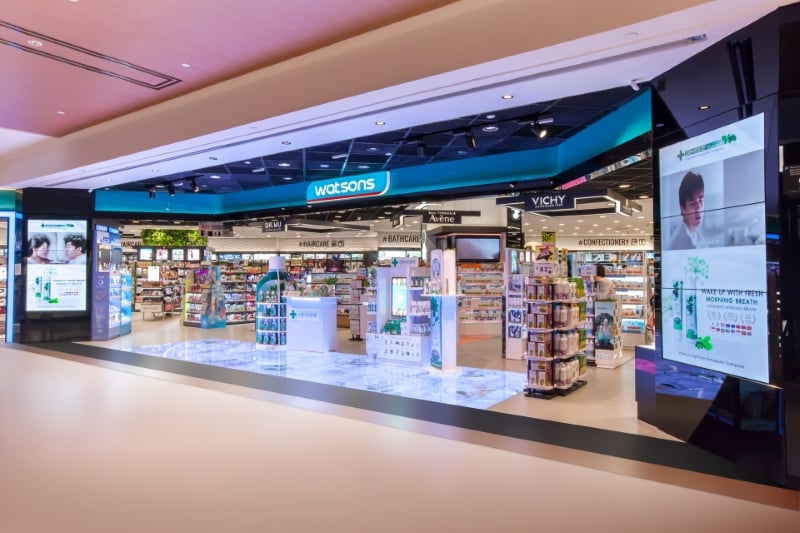
Other OTC medicines, such as Zyrtec, Clarityne, Gaviscon, Decolgen, Actifed, and ibuprofen, are classified as Pharmacy-Only (P) medicines. This means they can be bought without a prescription but only from a licensed pharmacy with pharmacist supervision.
Where to Buy Prescription-Only Medicines in Singapore
There are many places to buy your medicines, from doctors and pharmacies to private and public hospitals. Since medications in Singapore are heavily regulated, unless they’re common medications like diarrhea pills, paracetamol, or pills for common colds, you will need to visit a doctor and get prescriptions in many cases.
Here’s a rundown of them all.
General Practitioners
Needless to say, doctors all across the country carry all kinds of medicines, including prescription-only ones. I have been going to my family doctor, a General Practitioner (GP), for over 20 years, and he has a small, in-house dispensary, so after the consultation, I can immediately get my medication.
However, his range of products is limited, and if I am prescribed something that isn’t available, I’ll have to take the prescription to a larger pharmacy and get it filled there.
The prices are generally similar whether you get your medication in-house or at a hospital or retail pharmacy.
Hospital Pharmacies
All hospitals, whether public or private, have their own in-house pharmacies. This is where you’ll find the widest range of medications, which is great if you’re looking at something a little more obscure. Public hospitals do have a longer waiting time, and although efficient, they go on a numbered system, so you’ll have to wait to get your number called, which can take anything from 10 minutes to an hour during peak periods.
Private hospitals will give you way quicker service, but you might have to shell out more, and the difference can be substantial. If you go to a private hospital for treatment, it might be worthwhile to buy health insurance. Or you might want to take your prescription and get it filled elsewhere.
Polyclinics
Singapore is chock-full of polyclinics, which are public healthcare institutions. There are over 20 of them scattered around the country in key neighbourhood zones. These clinics are run by three groups:
Each polyclinic comes with its own pharmacy where you can fill prescriptions right after you visit the doctor. Unfortunately, these clinics are primarily catered to Singaporeans and PR holders, who enjoy significant subsidies and receive medical care without the hefty price tag of private institutions.
For example, I get a month’s supply of amlodipine besylate (for high blood pressure) at SGD $2.50 at subsidised prices at a polyclinic, but in a retail or private hospital, it costs about S8 to $12.
While as an expat, you won’t enjoy the subsidies, you’ll still be able to register, see the doctors there, and get your medication at a cheaper price than you would in private facilities, making it more affordable in the long run, especially if you have a chronic condition that requires regular medication.
Related article: The Overview of Singapore’s Healthcare System for Expats
SingHealth’s Health Buddy App
SingHealth is the largest public health group in the country. Not only do they run polyclinics, but they also run several hospitals and specialist centres. SingHealth created the Health Buddy app, a handy tool which I use to book doctors’ appointments, store my test results to be shared with any government institution I choose, and refill any prescription medications online.
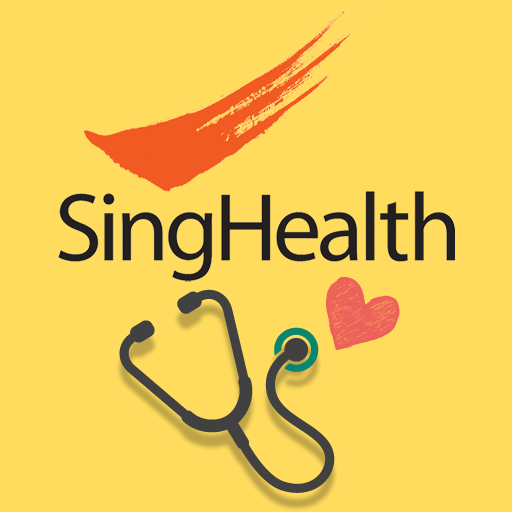
As an expat, you’ll pay full, non-subsidised prices, but still, the prices are often lower than what you’d find in the public sector. First, you’ll need to see a doctor at a government institution and get a prescription.
Once you’ve done so, your details will be stored in the government database, and you can easily use the Health Buddy app to refill.
To register for Health Buddy, you’ll need a valid FIN number and a SingPass account, and of course, the app. There, you can request prescription refills, make new orders, get them delivered, or pick them up at a designated clinic or pharmacy.
Once you get all set up with your Health Buddy app and SingPass login, this method is incredibly convenient. I use it all the time to fill my prescriptions and get them delivered on the same day, so I get to skip the queues at the polyclinics and save on the waiting times.
Retail Pharmacies
Singapore is home to numerous large retail pharmacy chains such as Guardian, Watson’s, Unity, Summit, and Medic. Each one not only has an in-house pharmacy, but they also sell an extensive range of OTC (Over-The-Counter) drugs, health supplements, beauty supplies, skin care, and many other wellness products.
You can find outlets everywhere, and there is at least one of them in every major mall, some MRT stations, neighbourhood hubs, and otherwise scattered generously across the nation.
Locals and expats alike shop at these retail pharmacies for OTC drugs like painkillers, cough syrups, and antihistamines. The more prominent outlets, like in Orchard Road, also have pharmacists on duty, so you can fill in your prescription if you have one, buy Pharmacy-Only (P) medicines, or get professional advice.
One big advantage of using retail pharmacies is the incredible convenience and accessibility.
They are widely available and you will rarely need to travel far to get your medicines. The prices are competitive, but still, not all products are priced the same, so you might want to check several outlets before picking your go-to retail pharmacy.
In addition, each chain often offers frequent promotions, membership programs, and package deals, which can save you money in the long run. For example, I have the Watsons Club card, which is a free card that you can apply for online or through their app.
This entitles me to member discounts of up to 30% off, birthday promos, member-exclusive deals, and free delivery if I shop online and purchase over S$40 worth of products. I also get to accumulate points for every purchase, which I can then use to redeem products or offers.
Online Pharmacies
Unlike many other countries, the licensing of online pharmacies in Singapore is tightly controlled and strictly regulated by HSA (Health Sciences Authority) and the SPC (Singapore Pharmacy Council). According to the Health Products (Licensing of Retail Pharmacies) Regulations 2016, all online pharmacies must have a valid license, a qualified pharmacist-in-charge, and meet stringent standards for operations and services.
Some popular licensed online pharmacies in Singapore include WellAway Pharmacy, Pharmex, Glovida, and Apex. Retail pharmacy chains mentioned above like Guardian, Unity, and Watsons, also have online stores.
I personally like shopping from hospital pharmacies like NUHS (National University Health System), or SingHealth Pharmacare, as both are government-run.
Telemedicine Sites
Telemedicine is becoming more popular in Singapore. For small sicknesses, you don’t need to visit a doctor’s physical address for a consultation. These days, medical help is just a video call away.
Services like Air Doctor, Doctor Anywhere, WhiteCoat, and HiDoc connect you to licensed Singapore-registered doctors through video consultations on your phone. If you’re prescribed medication after the call, it can be arranged for same-day delivery, often within a few hours.
A huge advantage of telemedicine is convenience. You can see a doctor from your home, office, or even when you’re travelling. Prices are transparent, and consultation fees are reasonable, which is normally at around S$30 per consultation, excluding medications and delivery fee.
You can also store your medical history and prescription records, so you can easily order a refill when you run out.
How to Get a Prescription
Getting a prescription is pretty straightforward, but one thing’s for sure. You’ll need to get it from a licensed GP, whether in-person or online.
Here are the common ways to get a prescription for medications in Singapore.
Licensed GP
You can go to a nearby private clinic or polyclinic to get a prescription. A private clinic might charge more for a consultation, but a polyclinic typically has a longer waiting time. For example, I wait about 15 to 30 minutes to see my regular family doctor, but at a polyclinic, I have waited up to an hour, depending on the day and time.
Try visiting during off-peak hours, like 10 am to 12 noon and 3 pm to 6 pm, to avoid the office crowd jostling for medical help.
Telemedicine Services
You can also get a prescription online by booking an online consultation session with a telemedicine site like Air Doctor. Then, when you get your prescription, you can get it filled and delivered on the same site, or you can take the prescription to a retail pharmacy.
Singhealth’s Health Buddy
Once you’ve been to the first consultation and gotten your prescription from a doctor from a government institution, you’ll have your details stored in a central database. Then, you can use the Health Buddy app to refill your prescription.
Note that you cannot do an online consultation here. You’ll have to do an in-person visit first, then subsequent refills can be done online.
Brand Names vs Generic
You might find your usual medication being called different names, and that can be confusing. For example, I was looking for amlodipine besylate for high blood pressure, and the pharmacist offered a drug called Norvasc. I didn’t know it at that time, but Norvasc is simply one of the brands of amlodipine.
Brand-name medications are original products developed and sold by pharmaceutical companies under proprietary names. For example, Panadol is a brand for paracetamol, and Augmentin is a brand for amoxicillin.
For allergies, Zyrtec is cetirizine, and Clarityne is loratadine. When buying brand-name medications, always check the active ingredient to make sure it’s what you need.
On the other hand, generic medications are brand-name equivalents that contain the same active ingredients and effectiveness.
In Singapore, both brand and generic medicines are heavily regulated by the Health Sciences Authority (HSA) to meet safety standards. So, unless you have specific reasons, you can just go with generic medications. It’s cheaper too.
Bringing Personal Medication Into Singapore
If you’ve already got your prescription filled elsewhere and are flying into Singapore, be mindful of the drug rules. Singapore medications regulations are strict. And you definitely do not want to break the rules here.
In general, there are four things you should know when bringing medications to Singapore:
- You can bring upto 3 months of personal supplies
- It shouldn’t be on the list of controlled substances in Singapore, like strong painkillers, certain sleeping pills, or medications containing codeine.
- Medications should be in original packages
- It should be for you or family only.
You can see a full list of requirements here. On that page, when you scroll down below, you will see a handy to help you find out whether or not you need to fill out an approval form to bring your personal medications or not.
It’s good to note again that, as of the time of writing this article (November 2025), you cannot buy, import, or carry personal medications for another person aside from immediate family members, and penalties can be harsh.
Final Thoughts on Buying Medications in Singapore
Singapore has a world-renowned healthcare system, so as long as you stick to government-licensed sources, you’re probably going to buy quality medications without a problem.
For prescription medicines, public facilities are always going to be more affordable, but the waiting time might be a little longer. Private facilities have less wait time. But it’s better to have health insurance since healthcare there can be expensive.
I personally get my regular medications by storing my details on SingHealth’s Health Buddy app after a first initial consultation with a GP. That way, I get my medication delivered to my home every time I need a resupply.
With OTC drugs available around every corner, you shouldn’t have many issues buying medications in Singapore. Welcome to my country, and I wish you a lovely stay.


